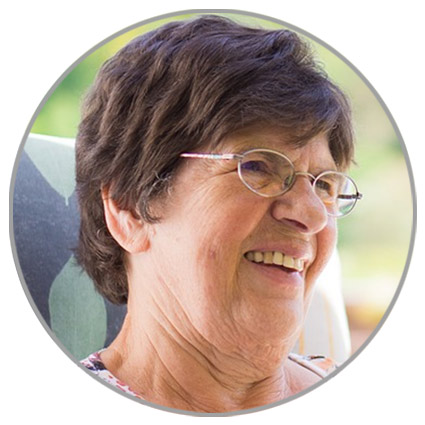
Who Goes Hungry?
The Food Bank serves nearly 650 families from Ashland and Talent each month. This translates to feeding about 1,700 people per month - and 35% of those families have children under the age of 18. Oregon, and Jackson county's hunger and food insecurity rate remains one of the highest in the nation.
As a community food bank our shoppers come one time per month and we provide enough food for breakfast, lunch and dinner for 2-3 days. This is often the bridge that helps families get through the month. No one can focus on life's problems until they and their children are fed.

Understanding Food Security
Food security means access by all people at all times to enough food for an active, healthy life.
The USDA Economic Research Service (ERS) plays a leading role in Federal research on food security and food security measurement in U.S. households and communities and provides data access and technical support to social science scholars to facilitate their research on food security. ERS research focuses on ...
read more on usda.gov
Hunger vs. Food Insecurity
The U.S. Department of Agriculture (USDA) defines food insecurity as a lack of consistent access to enough food for an active, healthy life. It is important to know that hunger and food insecurity are closely related, but distinct, concepts. Hunger refers to a personal, physical sensation of discomfort, while food insecurity refers to a lack of available financial resources for food at the level of the household.
read more at usda.org
Childrens' Hunger

Heather's Story
Heather is so grateful that Kendra can get lunches during the week, and often breakfast at her school. Sometimes Heather doesn't eat a meal so that Kendra has enough food. Heather said she just tells Kendra "Mom isn't hungry right now. It's ok". The Ashland Community Food Bank is a place they can rely on to get them get through the month. Kendra also occasionally receives a backpack filled with extra food for her family from the school. Kendra said "I'm glad that the food comes with the cool backback - and also the other kids don't know we need the food at home". The Ashland Community Food Bank supports the school backpack program as well as Maslow Project and also YMCA children's programs.
Senior Hunger
Senior hunger in our community
As the demographic in our community ages we are beginning to see more senior citizens shop at the food bank. 17% of our shoppers are seniors. After a lifetime of hard work some of these seniors have to make unfathomable choices - to buy food or medications or other necessities. We have 60 "super-seniors", those shoppers over the age of 75. We try to have the most nutritious food choices as well as some meals that are easy to prepare.
Senior hunger poses multiple challenges as many of these shoppers have medical conditions that require diet modifications. Our Fresh Food Purchase Program allows us to purchase fresh fruits and vegetables, milk and milk substitutes and eggs. We now have frozen vegetables as a choice as they are often softer when cooked and can be added to stretch prepared meals such as spaghetti.
As the baby-boom generation ages, the number of seniors facing hunger is only expected to increase. 10,000 new people per day are turning 62 and this trend will continue beyond the next decade. ACFB supports the Ashland Senior Center and also makes sure seniors have referrals to other agencies that may be of help to them. ACFB is aware of these demographic changes and are working on ways to make sure that no seniors in our community go to bed hungry.

Meet Alice
"Alice" and her husband retired and moved to Ashland many years ago. Recently Alice's husband passed away and now Alice is struggling on a reduced income. She attempted to find work, but many were reluctant to hire senior workers and she is unable to be on her feet for hours at a time. She is unable to grow and tend to the large garden they used to have for extra produce in the summer.
Alice does not like to ask for help, as she was born during the great depression and she was taught to be self-reliant and hard-working. Alice comes to the food bank once per month to shop and that helps her stretch her food budget to get through the month. She said she is exceptionally grateful for the fresh local produce she can receive here at the food bank, and that she can choose the foods and meals that she can prepare herself.
Rural

Meet Sarah
Her parents moved there years ago because it was a place they could live in their mobile home and still have some land around them. When they were younger they had a large garden, chickens and some cattle. Sarah drives into town once a month to shop at the food bank for her entire family. At ACFB the amount of food a shopper can choose is based on family size. Sarah can choose foods that are appropriate for her parents as well as her children. Sarah said she is grateful she has access to the variety of food - free of charge - to help feed her family.
Oregon’s Spike in Food Insecurity Worst Among All States
Oregon Shows little, if any, progress in reducing food insecurity. Here is the new link to the study that just came out a few weeks ago:
